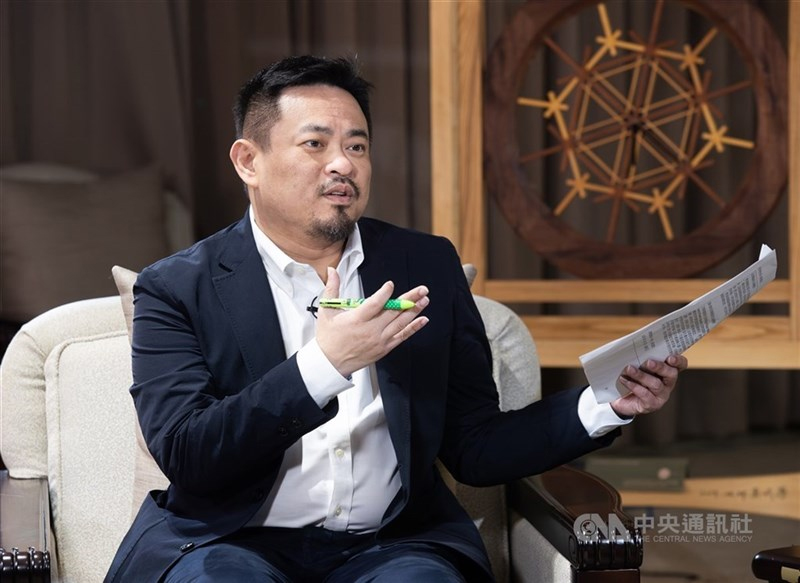Taiwan’s Minister of Labor, Hung Sun-han (洪申翰), delivered a clarion call for employment system reforms during the 2025 Asia-Pacific Economic Cooperation (APEC) Human Resources Development Ministerial Meeting, spotlighting urgent challenges brought on by automation, digitalization, and demographic changes.
Held for the first time in over a decade, the meeting gathered labor ministers and officials from 21 APEC economies in Jeju under the theme “Sustainable Labour Markets and Jobs for the Future.” For Taiwan, the occasion provided both a stage to assert its strategic labor priorities and a platform for international alignment amid dramatic transformations in the global labor landscape.
Taiwan’s Labor Landscape: Balancing Technology and Humanity
Minister Hung emphasized that Taiwan, like many APEC economies, faces a dual-pronged challenge: the rise of non-traditional employment through digital gig platforms, and a shrinking, aging workforce that threatens long-term economic productivity.
Hung stated, “AI and automation are reshaping work. While they create opportunities, they also expose workers to new vulnerabilities. Governments cannot afford to ignore the growing gaps in labor protections for freelancers, gig workers, and digital nomads.”
This comment reflects Taiwan’s rising participation in the platform economy, where app-based gig work—ranging from food delivery to online freelancing—is booming, but regulation is lagging behind. Without clear standards, millions of workers may remain outside the safety net of insurance, pensions, or job security.
Key Areas of Concern for Taiwan
1. Aging Society and Shrinking Workforce
Taiwan’s fertility rate of 0.87 (2024) is among the lowest globally. The labor force is shrinking rapidly, with the proportion of seniors projected to exceed 25% by 2030. The country is pivoting toward utilizing its “silver labor force”—encouraging seniors and mid-career professionals to stay in or re-enter the workforce with supportive policies.
2. Gender Gaps in Employment
Cultural expectations and unequal household burdens have kept many Taiwanese women from fully engaging in full-time employment. Hung reaffirmed Taiwan’s commitment to gender-inclusive labor policies, aiming to increase female labor force participation through childcare support, flexible hours, and workplace equality laws.
3. Aligning With Global Labor Standards
Taiwan is not a formal APEC member due to its diplomatic status, but it actively engages in APEC dialogues under the name “Chinese Taipei.” Participation allows Taiwan to harmonize its human resource strategies with international standards, particularly regarding decent work, labor digitization, and sustainable development goals (SDGs).
Beyond Policy: What Makes This Moment Unique?
This year’s APEC labor summit marks more than just a bureaucratic gathering—it reflects a pivotal moment of global labor redefinition. The 11-year hiatus between APEC labor ministerial meetings underscores how urgent it has become for economies to realign their workforce systems in the post-pandemic, AI-driven era.
Hung’s participation shows Taiwan’s proactive stance and willingness to be seen as a regional leader in inclusive labor reform. It also reflects the island’s ongoing diplomatic balancing act—finding global relevance and partnerships without formal state recognition.
Looking Ahead
The Ministry of Labor (MOL) will be working to:
- Draft new labor protection frameworks for platform economy workers.
- Incentivize employers to retrain or retain aging workers via tax benefits and HR subsidies.
- Expand public-private partnerships to improve job readiness and lifelong learning.
Hung concluded his remarks by calling for deeper regional collaboration, noting, “We need to collectively respond to global labor challenges. No country can navigate the future of work alone.”
FAQs
Why is Taiwan focusing on labor reforms now?
Taiwan faces a rapidly aging population and declining birthrate, alongside rising gig and digital work. Reforms are necessary to ensure long-term economic sustainability and social equity.
What is the APEC Human Resources Development Ministerial Meeting?
It’s a platform for APEC economies to discuss labor policies, job creation, and workforce challenges. The 2025 meeting in Jeju was the first in over a decade.
How does AI impact Taiwan’s workforce?
AI and automation are displacing traditional jobs while creating new digital opportunities. This shift requires new protections for non-traditional workers and upskilling of the existing labor force.
What is Taiwan doing to support women in the workforce?
The government is expanding childcare services, promoting flexible work arrangements, and enforcing gender equality laws to close the participation gap.
Is Taiwan a formal APEC member?
No, Taiwan participates under the name “Chinese Taipei” due to its unique international status, but it actively engages in policy dialogues.


